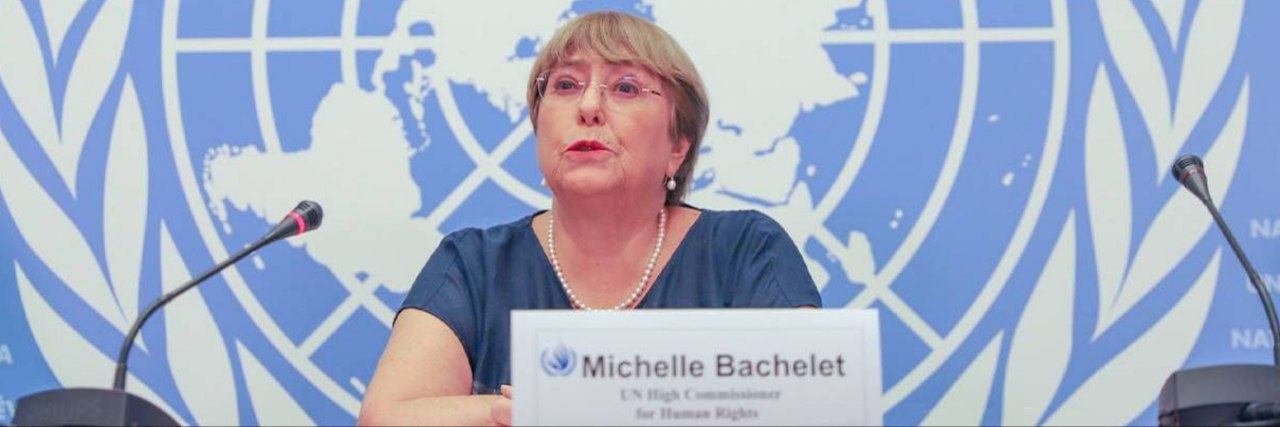
High Commissioner for Human Rights, Michelle Bachelet, expressed her concerns about the escalation of the use of the death penalty by several countries, including Saudi Arabia. In her press conference held on August 25, 2022, days before the end of her term in office on August 31, 2022, Bachelet indicated that 170 countries have suspended or abolished the death penalty in law or practice but that some countries are escalating its use, including Saudi Arabia.
The High Commissioner’s reference to the violations of Saudi Arabia during her last press conference confirms the wide range of violations in the country. It also comes as a culmination of sharp criticism directed by Bachelet to Saudi Arabia during her tenure, which began in September 2018.
In her first speech before the Human Rights Council after accepting the position of United Nations High Commissioner for Human Rights, Bachelet criticized Saudi practices. During the opening of the thirty-ninth session of the Council on September 10, 2018, it expressed its concern about the campaign launched by the Saudi government against human rights defenders, especially women’s rights defenders, and referred to the arrest of Samar Badawi and Nassima Al-Sadah on July 30, 2018, and their isolated detention since then.
On April 24, 2019, Bachelet strongly condemned the mass execution of 37 people, despite repeated calls by the Human Rights Council regarding the lack of due process and fair trial guarantees, and emphasized that at least three of the victims were minors at the time of the alleged crime, and also expressed deep concern over the fate of those still on death row.
On February 27, 2020, while presenting the work of the Commission at the 43rd session of the Human Rights Council, Bachelet called on Saudi Arabia to seize the opportunity of this year's G-20 summit in Riyadh to demonstrate progress in implementing its international human rights obligations. It also called for a review of the sentences of all those convicted of speech-related charges, including human rights defenders, religious leaders and journalists.
On September 14, 2020, during the 45th session of the Human Rights Council, the High Commissioner expressed her deep concern about the continued arbitrary detention of female human rights defenders in Saudi Arabia and called for their release without delay.
On February 27, 2021, Bachelet said that Saudi Arabia continues to detain individuals illegally and urged it to support freedom of expression and the right to peaceful assembly. In the context of discussions on the second item of the 46th session of the Human Rights Council, Bachelet regretted the continued unjust detention of women.
On March 14, 2022, Bachelet condemned the mass execution carried out by Saudi Arabia against 81 people. In her statement, she indicated that 41 of those executed faced charges related to participating in anti-government protests. The High Commissioner explained that the monitoring confirmed that some of those executed were sentenced to death after trials that lacked justice and due process guarantees and for crimes that are not among the most serious as required by international law.
The European Saudi Organization for Human Rights notes that the High Commissioner for Human Rights, Michelle Bachelet, has repeatedly referred to Saudi Arabia's repeated violations during her four-year term, especially concerning the implementation of the death penalty. Despite the high level and sharp criticism, Saudi Arabia continued to implement the death penalty and escalated it to carry out two mass executions and continues to threaten the lives of dozens, including minors, in addition to the continued arrests and harassment of activists.
ESOHR believes that Saudi Arabia's disregard for criticism confirms its disregard for international law and its obligations. While the organization stresses the importance of continuing to criticize Saudi Arabia and its practices at all levels, the escalation of violations and ignoring criticism indicates that there is a need to find other ways that contribute to pushing Saudi Arabia to implement its commitments before the United Nations and to hold all violators accountable.
